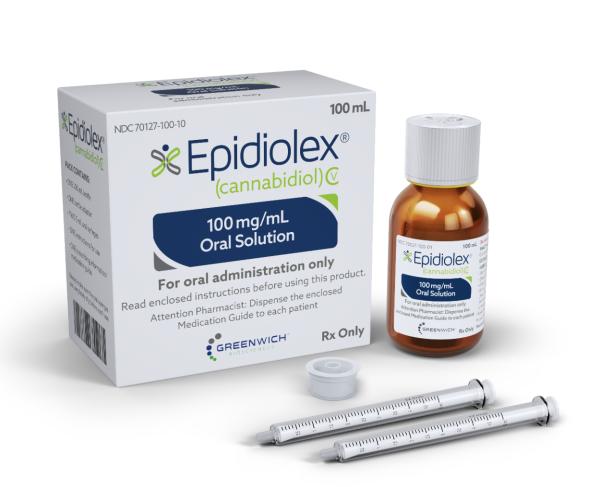Cannabidiol and Alcohol/Food Interactions
There are 2 alcohol/food/lifestyle interactions with cannabidiol.
Alcohol (Ethanol) Cannabidiol
Moderate Drug Interaction
Using cannabidiol together with ethanol (alcohol) may increase side effects such as dizziness, drowsiness, confusion, and difficulty concentrating. Some people may also experience impairment in thinking, judgment, and motor coordination. You should avoid or limit the use of alcohol while being treated with cannabidiol. Do not use more than the recommended dose of cannabidiol, and avoid driving, operating machinery, or engaging in potentially hazardous activities requiring mental alertness and motor coordination until you know how the medication affects you. Talk to your doctor if you have any questions or concerns. It is important to tell your doctor about all other medications you use, including vitamins and herbs. Do not stop using any medications without first talking to your doctor.
Cannabidiol Food/Lifestyle
Moderate Food Interaction
Food may affect the absorption and blood levels of cannabidiol. To avoid significant fluctuations in blood levels of the medication, cannabidiol should be taken about the same time each day consistently either with or without food. Consumption of grapefruit and grapefruit juice should be limited, as it may increase the blood levels of cannabidiol. Patients who consume grapefruit or grapefruit juice may require a lower dosage of the medication based on blood levels. Talk to your doctor if you have any questions or concerns. It is important to tell your doctor about all other medications you use, including vitamins and herbs. Do not stop using any medications without first talking to your doctor.
Switch to professional interaction data
Cannabidiol drug interactions
There are 625 drug interactions with cannabidiol.
Cannabidiol disease interactions
There are 2 disease interactions with cannabidiol which include:
More about cannabidiol
- cannabidiol consumer information
- Check interactions
- Compare alternatives
- Reviews (7)
- Latest FDA alerts (2)
- Side effects
- Dosage information
- During pregnancy
- Support group
- Drug class: miscellaneous anticonvulsants
- Breastfeeding
- En español
Related treatment guides
Drug Interaction Classification
| Highly clinically significant. Avoid combinations; the risk of the interaction outweighs the benefit. | |
| Moderately clinically significant. Usually avoid combinations; use it only under special circumstances. | |
| Minimally clinically significant. Minimize risk; assess risk and consider an alternative drug, take steps to circumvent the interaction risk and/or institute a monitoring plan. | |
| No interaction information available. |
See also:
Further information
Always consult your healthcare provider to ensure the information displayed on this page applies to your personal circumstances.


